♫ But I won’t look back, gonna keep on walking
For I know what lies ahead…♫
Lyrics, music and record by The Oak Ridge Boys.
In this Part II of the 2016 predictions, we continue our crystal-ball gazing into the near future! In this part we have predictions from:
- Bob Denney
- Joshua Lenon
- Frank Fowlie
- Euan Sinclair
- Russell Alexander
- Nate Russell
- Michael McCubbin
- Rob Walls
- Roger Smith
- Kevin O’Keefe
..and we will have further predictions in Part III!
Bob Denney:
The winds of change that have been buffeting the legal profession, not only in the United States and Canada but also world-wide, will intensify. These will be some of the strongest gusts:
- The number of non-law service providers will continue to increase as will the number of services they provide at less cost than firms can afford to charge.
- Legal departments in corporations and non-profit organizations will continue to grow in size because clients will keep more legal work in-house since it is less costly and can be managed more efficiently.
- The large international firms will continue to grow in size as they merge-in other firms but the total number of practicing lawyers in firms and legal departments will continue to decrease and fewer people will enter the profession.
- Non-lawyers with backgrounds in business, marketing and technology will continue to play a greater role in the management and operations of law firms.
- The Big Four Accounting firms will continue quietly but steadily building their legal services divisions in the countries that have authorized multi-disciplinary practices (MDPs), Britain, Australia and Mexico. However, rather than trying to build full-services practices, they will continue to concentrate on areas of law that complement their existing services such as immigration, which fits with expatriate tax work, labor which fits with human resources consulting and compliance, commercial contracts and due diligence.
About Bob:
For more than 30 years Bob Denney has been regarded as a leading authority on strategy, leadership and management for law firms throughout the United States and parts of Canada. He is a Fellow in the College of Law Practice and was one of the first inductees into the Legal Marketing Association’s Hall of Fame.
Joshua Lenon:
This is the year things open up. We’ve seen firms of all sizes adopting technology on one hand; on the other are firms dragging their feet. This is the year that those that invested in technology and the process breakaway. We’ve already seen foreshadowing of this in various surveys and metrics. By the end of 2016, there will be clear indicators of firms excelling precisely because of their adoption of technology.
About Joshua:
Joshua Lenon is an attorney admitted to the New York Bar. He studied law at St. Louis University School of Law, obtaining a Juris Doctorate and a Certificate in International and Comparative Law.
During this time, Joshua clerked for the Missouri Attorney General, helping prosecute discrimination claims on behalf of Missouri citizens.
Joshua also studied European Union Law at the University of Georgia School of Law’s Brussels Legal Seminar.
Joshua has since helped legal practitioners improve their services, working for Thomson Reuters’ publishing departments in both the United States and Canada.
Joshua currently serves as Lawyer-in-Residence for Clio, providing legal scholarship and research skills to the leading cloud-based practice management platform.
Frank Fowlie:
I think the one prediction I would make is the courts adopting the ‘Right to Be forgotten”. The European Union Court of Justice was the first to make such a ruling, and Japan has done the same. The British Courts have recently held that if something was covered by the EU ruling, it ought to be applied to the whole internet, and not just EU based search engines.
About Frank:
Dr. Frank Fowlie is presently the Ombudsman at the International Organization for Migration in Geneva. He was previously the inaugural CEO of InternetOmbudsman.Biz. In addition, Frank Fowlie was the inaugural Ombudsman at the Internet Corporation for Assigned Names and Numbers(ICANN).
ICANN is the agency which administers the global domain name system which serves as the backbone for the Internet. He served as the Ombudsman from November 2004 to January, 2011.
Euan Sinclair:
Predictions for 2016:
Legal Project Management as a concept is only growing. As I have developed my technology law practice in 2015, it is very apparent to me that clients are increasingly cost sensitive and look for lawyers to actively manage costs. I spend a good portion of my time preparing and updating budgets and Gantt charts for clients. Lawyers increasingly need to develop business skills like these to survive.
The more-for-less philosophy is becoming entrenched with in house counsel. It seems that if law firms won’t innovate, then clients will build innovative in-house teams. The combination of innovative in-house legal teams and automated processes may prove very tricky for law firms who may lose a significant portion of the bread-and-butter routine work they presently carry out for clients.
The rise of the procurement department as the purchaser of legal services and the professional law firm CEO will probably happen towards the end of the decade. A new risk to add to the radar is the incursion of the big four accountancy firms into the legal sphere. This is entirely self-inflicted since lawyers refuse to act on anything other than a narrow mandate. Lawyers with business skills, offering holistic advice, can help to reverse this trend.
About Euan:
Euan Sinclair was an in-house commercial lawyer for a number of years in Scotland before moving to BC in 2011 to become Director, Knowledge Management at Lawson Lundell LLP (all views expressed are his own). He also holds an MBA from Edinburgh University and a LLM in IT law from Strathclyde University, where he was taught by Professor Richard Susskind, amongst others. Euan called at the BC bar in 2014 and specializes in technology law. He is a LLM (Business Law) candidate at Osgoode Hall Law School.
Russell Alexander:
And now for something completely different
2016 Prediction (and hope): We will continue to see More Judicious Quips from Superior Court Justice Quinn
Justice Quinn has a reputation for ‘telling it like it is’ when he writes his Judgments. Sitting as a Superior Court Justice in the Province of Ontario, Justice Quinn has adjudicated many cases; some of his notorious quips include the following:
Catherine Bruni v. Larry Bruni
- “Here, a husband and wife have been marinating in a mutual hatred so intense as to surely amount to a personality disorder requiring treatment.”
- This hatred has raged unabated since the date of separation. Consequently, the likelihood of an amicable resolution is laughable (hatred devours reason); and, a satisfactory legal solution is impossible (hatred has no legal remedy).”
- “Catherine and Larry were married on October 7, 1995. If only the wedding guests, who tinkled their wine glasses as encouragement for the traditional bussing of the bride and groom, could see the couple now.” And then later in an endnote “I am prepared to certify a class action for the return of all wedding gifts.”
- The legal system does not have the resources to monitor a schedule of counselling (nor should it do so). The function of Family Court is not to change people, but to dispose of their disputes at a given point in time. I preside over a court, not a church.”
- “I come now to the issue of spousal support, historically the roulette of family law (blindfolds, darts and Ouija boards being optional).”
- “It is likely that, in the period 2004-2006, Larry was having one or more extramarital affairs. Interestingly, Larry’s father was married five times, in addition to going through several relationships. Perhaps there is an infidelity gene.”
- “The New Shorter Oxford English Dictionary defines “dickhead” as “a stupid person.” That would not have been my first guess.”
- “On another occasion in July of 2009, Larry said to Taylor: “You put shit in this hand and shit in this hand, smack it together, what do you get? Taylor.” And the endnote “I gather that this is Larry’s version of the Big Bang Theory.”
Pirbhai Costs Decision
- “Singh was evasive as a witness. He refused to acknowledge simple factual matters. He failed miserably in making reasonably diligent efforts to provide documentary disclosure, rendering it obvious that his objective was to divulge only what he wanted the court to see. Singh lied under oath. He tendered forged documents in evidence with the intention that the court act upon them. He perpetrated a fraud upon the plaintiff and his plan was to do the same upon the court. In this trial, he was a one-man crime wave. “
Thomas v. Thomas
- The parties in this matrimonial litigation, both with a military background, came to learn that marriage “is a field of battle and not a bed of roses.”
A footnote reads:
- It is both sad and remarkable that, prior to the wedding, these highly intelligent people did not discuss if they would have children or what roles each would perform in the marriage or whether the wife would be expected to pursue a career and work outside the home. A marriage licence surely must be the easiest of all licences to obtain.
- Like many families, watching rented videotaped movies was part of their lifestyle. However, they each would rent their own movies and watch them separately. Apart from eating, sleeping and breathing they had nothing in common.
- It is quite amazing that the marriage lasted 14 years. One would have thought that, “The weakest kind of fruit drops earliest to the ground.” (Shakespeare, The Merchant of Venice, Act IV, scene i, line 115.)
Stirling v. Blake
- In the period 2001-2013, these parties (individually or together) appeared in Family Court 65 times. At the St. Catharines Court House, they are more tenants than litigants.
- [The father] is a 55-year-old, self-employed painter, sometimes likeable, frequently articulate and always passionate. He has been married, divorced and is a grandfather and, like so many of the poor souls who amble into Family Court, he has not learned from his mistakes. He is too busy perfecting them. [The father] dances to the tune of a different drummer.
- In a trial involving self-represented litigants, my expectations are low: all I ask is that they be clothed. If they can fake civility toward each other and pretend to be respectful of the court, that is a merciful bonus.
Szakacs v. Clarke
- For best courtroom adaptation of a work of fiction, the award goes to the applicant, Clarissa Olenka Szakacs, who shamelessly feigned what she thought was necessary to convince the court to circumscribe access by the respondent to their almost-six-year-old daughter.
- One could sit in Family Court for many years and not encounter such a callously conniving and mendaciously manipulative litigant. …
- At several points throughout the trial, Ms. Szakacs emphasized that she was a Christian who practiced Christian values. There must be some key pages missing from her copy of the Bible.
So our prediction (and hope) for the legal community is for Justice Quinn to keep providing insightful and colourful quips of the quirky and often sad litigants that continue to draw the ire of both the Judiciary and the legal community.
About Russell:
Russell obtained his undergraduate degree from the University of Toronto and his law Degree from Osgoode Hall Law School. He founded Russell Alexander Family Lawyers in 1998, following his admission to practice law. The firm’s first location was opened in Lindsay, Ontario in 1998, followed by the Brooklin office in 2006 and the Markham office in 2010.
Today, Russell is widely renowned as a speaker at conferences relating to technology and the law. He is a faculty member of the American Bar Association TECHSHOW and has spoken at several conferences in Chicago and Toronto. He has also recently presented at the Ontario Collaborative Law Federation Conference and will Chair the Law Society of Upper Canada’s 2013 Technology and Family Law Conference.
Nate Russell:
My prediction relates to encryption tools, the law of solicitor-client privilege and the increasing risks both will face in an age of fear around terrorism and state security post-Paris attacks.
Encrypted messaging platforms and email services have been on the rise in the last couple years since the Snowden revelations. Snowden helped convinced us of the need for better encryption communications tools when he told us that state surveillance was not the stuff of paranoia—but rather a widespread and credible threat to solicitor-client privilege (among other forms).
Until the Paris attacks, Western government officials were — although vexed by renewed interests in encryption — largely lacking in public support for a crack down on encryption. Now, however, the agenda to force backdoors on secure products and encryption software is renewed.
For lawyers, to live in a world where warrantless surveillance of our clients’ communications to us is a credible threat we must face a moment of truth. What are we willing to do to continue to preserve the existing protections of privilege? And if the encryption tools that could have worked are being undermined by state influence, what are we as a pillar of the Rule of Law, willing to do to craft our own solutions? I think we will see more debate about what role the profession (via individual law societies or perhaps the Federation of Law Societies or even lawyer-membership orgs like CBA) has in providing its own infrastructure , servers and software to support encrypted communications.
We have not seen much need to evolve the privilege in many years. In the 1830s, solicitor-client privilege emerged as a right of the client, versus the barrister. In the 1880s it grew to cover communications outside litigation per se. And in 1979, solicitor-client privilege was elevated from a rule of evidence to a substantive rule of law (the SCC in Solosky). It is now a fundamental civil and legal right in Canada. We are entering a time when lawyers may need to account for positive actions taken to preserve this right, up to and including building our own encryption services, since it has few other champions who can protect it as well as us.
About Nate:
Nate Russell is one of two Liaison Lawyers at Courthouse Libraries BC, and the primary coordinator of lawyer-produced content on www.courthouselibrary.ca and wiki.clicklaw.bc.ca. In addition to posts for the Stream, where Nate blogs on a variety of practical topics relevant to BC lawyers, he is a regular blogger with the national law blog Slaw. Nate’s posts tend to focus on technology and issues relevant to small firms.
Michael McCubbin:
Here’s my prediction: more remote working opportunities that will continue to erode the Cravath business model. Remote working, particularly when coupled with a fee-sharing arrangement, is really a triple win and I do not see how more firms are not taking advantage of it. Firms do not take on the overhead associated with real estate to house a lawyer. Lawyers can work as much, or as little as they want and from where they want (much of the time). Clients get better value by having happier, more responsive lawyers and (one would hope) receive better value from that as well as reduced rates to reflect the cost savings from reduced firm overhead.
Dogwood Law Corp., while not fee-splitting in at least this instance (I have no idea what their business model is for their law firm proper) is offering “e-lawyering” for lawyers who want a different work arrangement. Essentially, the service offers a flat monthly rate for access to support staff, use of office space for client meetings, and marketing.
Anyway – have a happy holiday and I wish you the best for the new year!
About Michael:
Michael draws on a broad variety of life experience that allows him to understand and relate to most clients that walk in the door.
He opened his office with the view that there was a better way to practice law, one that avoids the needless expense of conventional law firms and focusses on client outcomes. Today, his clients value things like not being charged for printing and file storage fees, as well as the responsive, efficient service associated with a digital practice that still has a bricks & mortar office in a Vancouver heritage building.
Michael holds a Bachelor of Environment, with an economics specialization, from the University of Waterloo. He obtained his juris doctor at the University of British Columbia. He was active in school life at both universities, captaining the varsity rugby team at Waterloo and playing a significant role in the Law Students Legal Advice Program at UBC. During this time, he also worked a variety of jobs ranging from manual labour to working for the Braidwood Inquiry and everything in between.
Beyond that, Michael is an avid sailboat racer, among other things having captained the yacht “Adrenaline” in an offshore race between Norway and Scotland. He is a keen backcountry and resort skier. His rugby days are behind him, but he remains connected to that community and often plays in alumni games when the chance arises.
Michael has acted for clients in such issues as the Occupy Vancouver case, a multimillion dollar tax fraud matter, a variety of human and civil rights cases, and in employment, personal injury, commercial, and environmental litigation.
Michael frequently speaks on legal technology issues and participated in one of the first paperless Court of Appeal hearings in British Columbia. He is an active member of the Trial Lawyers Association of BC and sits on its Legal Aid Action Committee.
Rob Walls:
I’ll give this a shot from a regional law firm IT perspective:
- After a major breach occurs, wearables will be identified as a legitimate threat vector and vendors will scramble to include them in their MDM/MAM/EMM solutions.
- Windows 10 will set new records for rate of adoption in the Enterprise.
- BlackBerry will exit the mobile hardware market.
- Hyperconvergence will become the darling buzzword du jour. The promise will be great but the reality much less so, for many years to come.
- #1 helpdesk response will remain “Have you tried rebooting it yet?”.
About Rob:
Rob’s been a computer enthusiast since the days when the family room TV filled in as computer monitor and programs took 30 minutes to save on audio tapes. He lobbied for, and got, a computer education program started at his high school and in college he focused on low level language programming. Rob then decided to explore his wild side as a CGA student before returning to IT and acquiring MCSE and CNA designations. In 2007, after almost two decades supporting technology in the ocean shipping industry, Rob entered the legal technology field with Boughton Law. He is responsible for the firm’s Information Technology infrastructure and just about everything else that’s plugged in. Rob is also the Technology Subsection co-chair of the BCLMA and Member Liaison of ILTA.
Roger Smith:
Predictions from London:
2016 is the big year and the eyes of the world are on British Columbia. Will the Civil Resolution Tribunal (CRT) reveal itself to be a winner in the Online Dispute Resolution stakes? Will MyLawBC show how international collaboration with a team in The Netherlands and a US platform can demonstrate how legal advice on the internet will change for ever?
For some reason – probably the West Coast vibe spreading up from the south – BC finds itself at the apex of developments in online legal provision. Throw in the magnificent work of the Justice Education Society (JES) which has inspired others around the world, not least the Californian courts which have leased some of its online provision and BC finds itself triple blessed in the low cost digital legal world – a rival for your lakes, mountains and snow in the real one.
My prediction is that both the big new projects will be a success. And JES will continue to delight its supporters – among whom I remain a cheerleader. Certainly, I am rooting from abroad for MyLawBC to herald the end of wallpaper advice sites and the beginning of a much more thoughtful and interactive approach. There is no reason why the CRT should not be a world beater. Out here across the Atlantic, we are certainly watching it with care in terms of showing how courts and tribunals may go online. There will, of course, be setbacks. teething problems and initially whingeing doubters. But, hold fast BC. 2016 will show you leading the world. And showing that public provision, sensitively deployed in digital provision, can significantly improve access to justice even in these straightened times.
About Roger:
Roger is a lawyer and legal aid expert who has conducted research on the potential use of digitally delivered legal services to those on low incomes for the Legal Education Foundation. His report is available on their website: www.thelef.org.
Kevin O’Keefe:
The line between networking in the offline world and the online world is going to begin to disappear. Professionals who understand how to press the flesh on the net as well at cocktail parties are the ones who will truly build relationships and a strong word of mouth reputation.
About Kevin:
One Response to “2016 Predictions – Part II”




















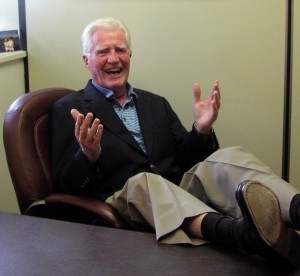
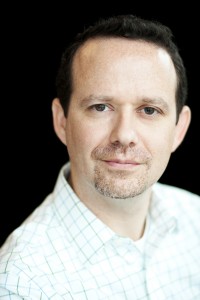
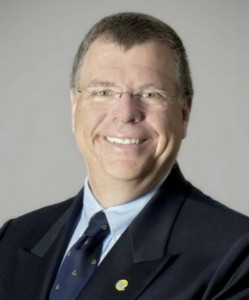

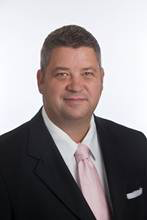
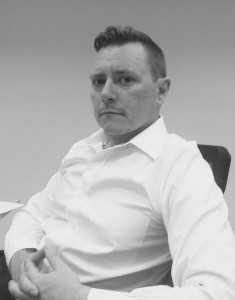

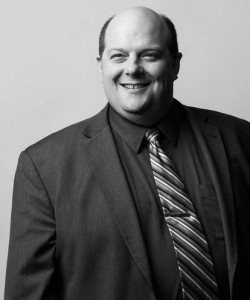
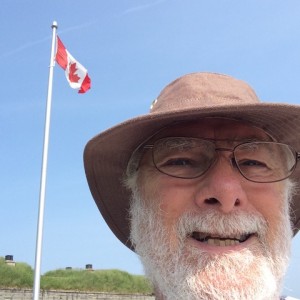

April 24th, 2016 at 9:35 am
I read this article completely on the topic of the difference of latest and preceding technologies, it’s awesome article.